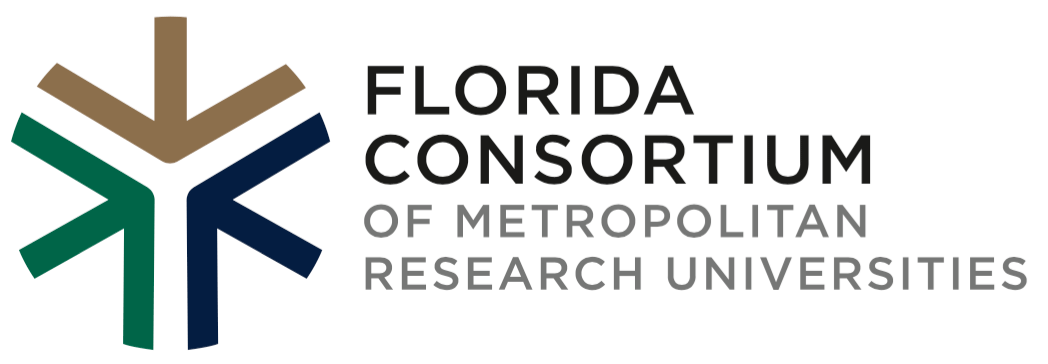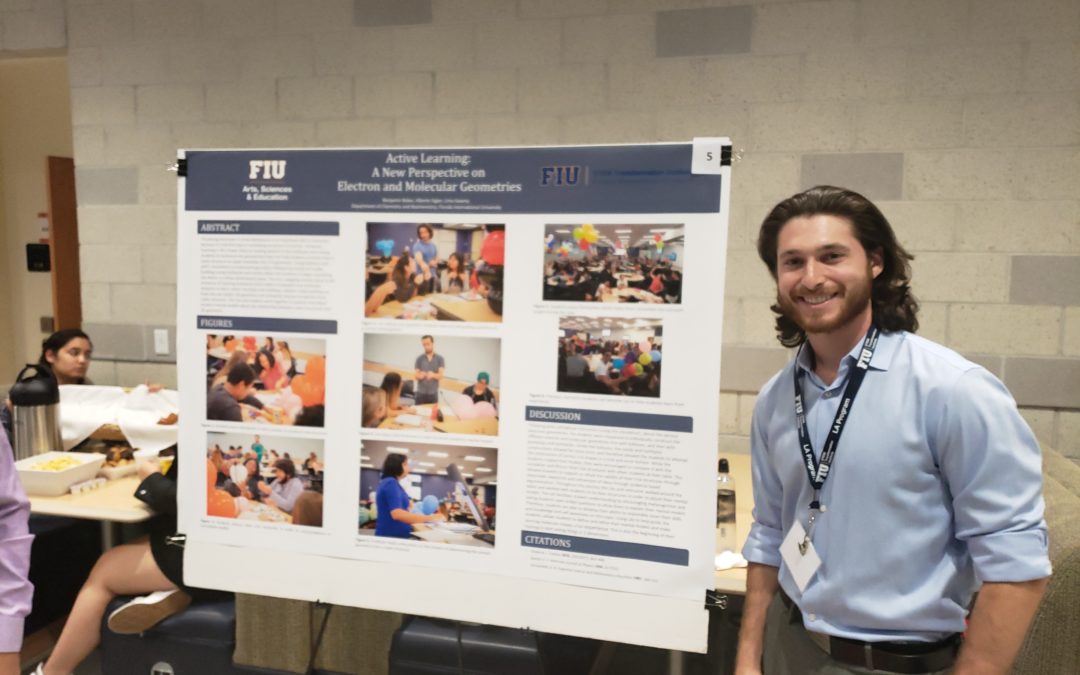Recently, over 100 faculty from Florida Consortium member institutions and state colleges gathered in Miami for the Florida Consortium Learning Assistant (LA) Workshop. Florida International University’s highly regarded, Learning Assistant Program was central to this workshop. A longstanding member of the Learning Assistant Alliance, FIU employs 322 LAs that are assigned to 11 departments and reach over 10,000 students annually.
Why is this important? Large gateway courses are the stopping point for many students however, LAs can help make those classrooms feel smaller. For instance, at FIU, a professor can have two to six LAs in a large class. This allows them to break the class into groups of 20 students or less. Students can work through projects, ask for assistance in an environment that is culturally responsive, and receive much needed support from a peer. According to Camila, a Chemistry LA at FIU; “We help professors by making sure we connect with each student. We start off by asking students about their day and then we engage them in a conversation about chemistry.”
In its tenth year, FIU’s LA program includes Chemistry, Math, Physics, and Psychology and it incorporates campus leaders and departments that provide a wide range of non-academic support services. For future LAs at FIU, the training program for is intense. LA trainees are required to take an annual course on teaching and learning pedagogy. They meet with their professors to go over course materials and how to approach group work each week. All of this in addition to moving along in their individual programs.
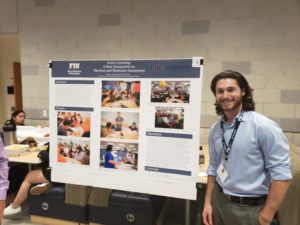
An interesting distinction of the LA experience at FIU is that they do not grade assignments or evaluate performance. Said another way, LAs are NOT teaching assistants. According to Camila, a LA at FIU; “if students knew we were grading them, then they may not be willing to tell us they are struggling because they don’t want it to affect their grade. The best thing we can hear is that a student is not sure, or has questions, because now we know we can help.” While they don’t track performance, LA’s often introduce innovative ways of teaching. For example, Brandon a LA in Chemistry makes 3D models of molecules with balloons. This technique helps students understand what molecules look like in real life. Brandon suggested; “As learners, we actually think in 3D, so this example takes an idea out of the book in a fun way.”
Throughout our two day workshop, experts from FIU shared deep insights on how LAs improved student performance. Virtually every class at FIU that has integrated LAs has delivered both improved grade performance and lower DFW rates. Biochemistry courses, has seen a pass rate improvement of over 80%. According to Ariana, a seasoned LA at FIU “We help make the connection because faculty cannot be there for every student. We know how it feels to struggle. Students are more likely to tell us when they don’t feel confident or if there is something else going on. We try to remember that culture goes beyond the normal stuff, each major has its own culture and language. Each discipline is a culture unto itself. I may be smart in physics but this student may know biology better than I do. So we try to translate for each other to help everything make sense.”
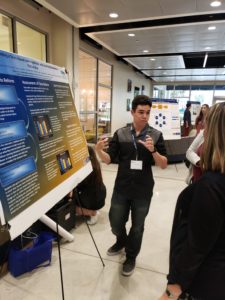
During the Florida Consortium Learning Assistant Workshop, participants also heard and learned from several national experts such as Jayson Nissen from the University of California at Chico, Jeff Boyer from North Dakota State University, Laurel Hartley from the University of Colorado at Denver, and Manher Jariwala from Boston University. They led participants through breakout sessions on LA selection, training, teaching and learning pedagogy, and classroom navigation. They also offered creative ways to secure funding for new LA programs.
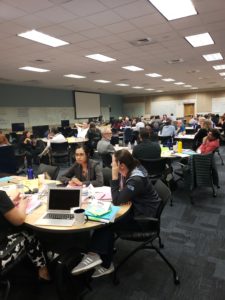
The Florida Consortium Learning Assistant Workshop was the third in a series of knowledge sharing events from our Florida Metropolitan STEM Continuum: From College to Career program. Throughout the past 18 months, we acknowledged common challenges and expertise where in depth experience and knowledge sharing could lead to scalable interventions. This extensive work was funded by the Helmsley Charitable Trust and has delivered extensive actionable insights.
In closing, we believe that our member intuitions; Florida international University, University of Central Florida, and University of South Florida can learn from and leverage best practices. In sharing, partnering and collaborating, we can deploy transformative student success initiatives that scale. In the coming year we will continue our joint work. Here is a snapshot of our strategic events:
• Sunshine Teaching & Learning Conference
• National Student Success Conference
• First Generation Conference
Related Content:
- Learning Assistant Alliance
- Are Learning Assistants An Untapped Resource in Higher Education?
- FIU honored by White House for Bright Spots in Hispanic Education
- Moving toward change: Institutionalizing reform through implementation of the Learning Assistant model and Open Source Tutorials
- Investigating student communities with network analysis of interactions in a physics learning center
- Expanded Markers of Success in Introductory University Physics
- Integrating Efforts to Support Instructional Innovation Academic Futures Learning Assistant White Paper
